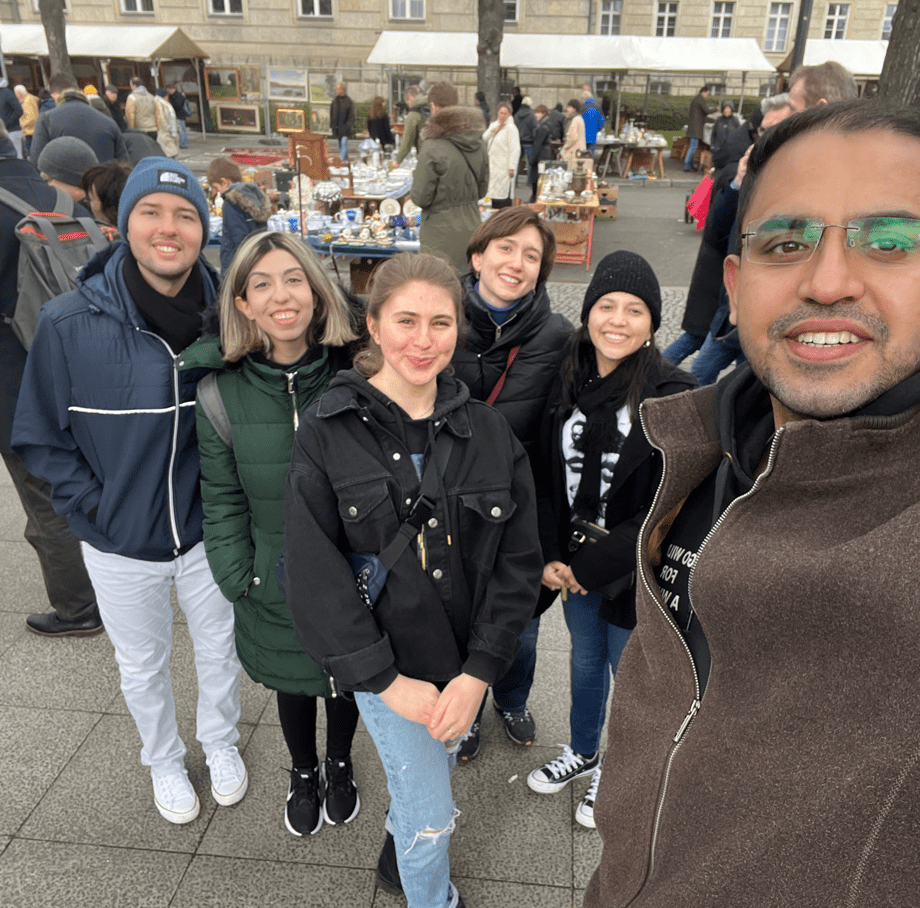
Germany, with its rich culture, history of innovation and vibrant culture, is a dream destination for many Indian students seeking a world-class education. The University of Europe for Applied Sciences (UE) welcomes students from all over the globe, and with its strong industry connections and practical focus, it’s no wonder Indian students are increasingly choosing UE for their academic pursuits.
However, making the move requires careful planning. This guide will walk you through the steps to ensure a smooth transition from India to Germany, so you can focus on your studies and enjoy your new life. This guide aims to simplify the process of moving to Germany from India, covering the key steps for settling in and starting your studies at UE. By following these steps and familiarising yourself with the requirements, you can study and settle in Germany with confidence.

How to Settle in Germany - Important Requirements to Move from India
Proficiency in German, although not always mandatory, is highly beneficial. Even if your programme is in English, learning German can make life easier. It helps with daily activities and improves your social life. Many students take language courses before and after arriving in Germany.
Additionally, proof of sufficient financial resources is necessary to meet living expenses. This is often done with a blocked account, which holds around €11,208 per year (about €934 per month). Set this up before you apply for your visa.
Health insurance is a must in Germany. You can choose between public and private health insurance. Public health insurance is generally a good choice for students. Make sure you have your insurance sorted out before you arrive.
Process for Moving to Germany from India
Here’s a breakdown of the key steps involved in moving to Germany and settling in for your studies:
Learn the basics about Germany: Before setting off, familiarise yourself with German culture, customs and the education system. Researching the cost of living, public transportation options and common social norms can help you adjust smoothly.
Figure out where you want to live: Germany offers a diverse range of cities, each with its own unique character. UE campuses are located in Berlin, Iserlohn and Hamburg. Consider factors like campus location, city size and overall vibe when choosing your base.
Prepare a budget that fits the cost of living: Germany offers a relatively affordable standard of living compared to other Western European countries. However, research accommodation costs, student living expenses, public transportation fees and food to create a realistic budget.
Find out the requirements to get German residence: The type of visa you need depends on your specific situation. For studying, you’ll likely require a student visa. Research the exact requirements and application process on the German embassy website in India.
Search for housing in Germany: Finding accommodation can be a challenge, especially in popular university cities. Start your search early and explore options like student dormitories, shared apartments (WGs) or private rentals. UE offers some assistance with finding accommodation, so check out our accommodation guide as a good starting point.
Translate and legalise documents: Many documents, like your transcripts and birth certificate, will need to be translated into German by a certified translator. Additionally, they may require legalisation from Indian authorities and the German embassy in India.
Apply for health insurance: German law requires all residents to have health insurance. There are two options for students: public or private health insurance. Public health insurance is typically cheaper but may have limitations in coverage.
Wrap up and get your tickets to Germany: Once you have your visa, housing secured, and other arrangements finalised, book your flight and get ready to embark on your German adventure!
Open a German bank account: Opening a bank account in Germany will simplify your finances. This allows you to receive funds, manage bills and pay for everyday expenses, including your rent and other living costs. Most banks offer good terms for students.
Apply for your residence permit: After arriving in Germany, register your address and apply for your residence permit at the local immigration office. You’ll need to submit your visa, passport, proof of health insurance and other documents as required.

Different Types of Residency Permits
1. Temporary Residence Permit (Aufenthaltserlaubnis): This is the most common type of permit for students. It is initially valid for the duration of your studies, usually 1-3 years, and can be extended if you continue your studies or find employment.
2. Permanent Settlement Permit (Niederlassungserlaubnis): This permit allows you to live and work in Germany for an indefinite period. You can apply for it after holding a temporary residence permit for 8 years and meeting specific requirements, such as proof of German language proficiency and financial stability.
3. European Union (EU) Blue Card: This permit is designed for skilled workers from outside the EU with a university degree and a job offer in Germany that pays a minimum salary threshold. Whilst not specifically for students, students graduating from German universities with a job offer in their field may be eligible for the Blue Card.
Additional Tips
Here are some final additional tips to make the transition into German life as seamless as possible:
- Network with other Indian students in Germany to gain insights and support.
- Learn basic German phrases to facilitate communication.
- Take advantage of student discounts and offers.
- Explore the vibrant student life in Germany.
- Be open to new experiences and cultural exchanges.
Moving to a new country is an exciting yet daunting experience. By following this guide and staying organised, you’ll be well-prepared to embark on your academic journey in Germany. UE offers a supportive environment for international students, providing resources and guidance to help you settle in and succeed. Embrace the opportunity to immerse yourself in German culture, expand your horizons and build a bright future.
Looking to jump-start you career in Germany? The University of Europe for Applied Sciences offers a range of internationally recognised bachelor’s and master’s programmes designed to equip you with the skills and knowledge needed to thrive in the German job market. Our programmes are taught in English and we offer a vibrant international student community and support services to help you adjust to life in Germany.
Take a look at our programme list today.
